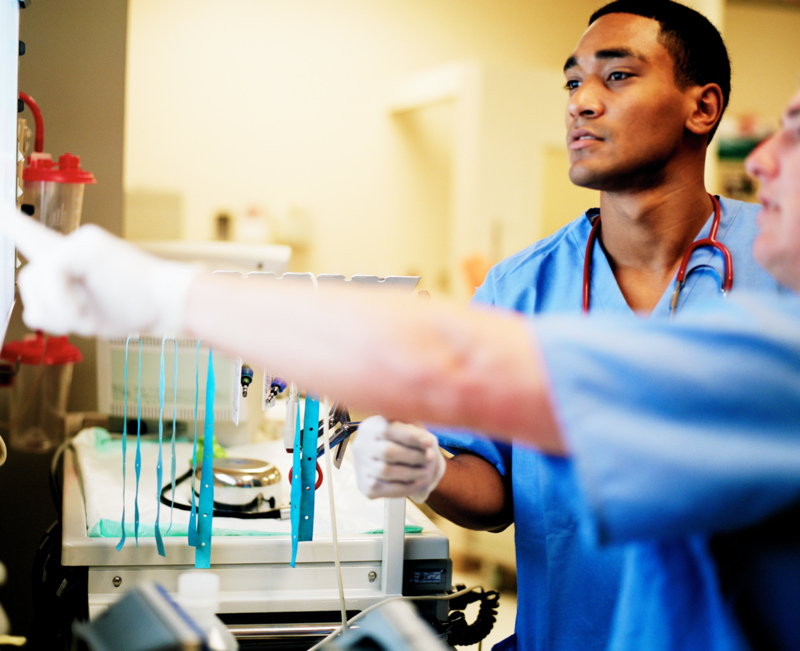
Here are some of the latest health and medical news developments, compiled by the editors of HealthDay:
FDA Warns Companies About Hand Cleaner Health Claims
Four companies have been sent warning letters telling them to stop making claims that their over-the-counter (OTC) hand sanitizers and other products prevent infection from methicillin-resistant Staphylococcus (MRSA) bacteria, the U.S. Food and Drug Administration said Wednesday.
Labeling and marketing materials for the products also claim that they can prevent infection from other disease-causing germs and viruses, and some claim to protect against E. coli and the H1N1 swine flu virus. There is no proof to support these claims and the companies are marketing them in violation of federal law, the FDA said.
The warning letters were sent to:
- Tec Laboratories for Staphaseptic First Aid Antiseptic/Pain Relieving Gel
- JD Nelson and Associates for Safe4Hours Hand Sanitizing Lotion and Safe4Hours First Aid Antiseptic Skin Protectant
- Dr. G.H. Tichenor Antiseptic Co. for Dr. Tichenors Antiseptic Gel
- Oh So Clean, Inc dba CleanWell Company for CleanWell All-Natural Foaming Hand Sanitizer, CleanWell All-Natural Hand Sanitizer, CleanWell All-Natural Hand Sanitizing Wipes, and CleanWell All-Natural Antibacterial Foaming Handsoap.
The companies were given 15 days to correct the violations. Failure to do so may result in legal action, including seizure and injunction, the FDA said.
—–
Cussing Eases Pain: Study
Swearing actually helps soothe pain, a new study finds.
U.K. researchers had volunteers hold their hand in cold water for as long as they could while repeatedly cursing. They then did it again while repeating nonswear words. The participants were able to hold their hand in the cold water longer when they were swearing, msnbc.com reported.
The Keele University study appears in the journal Neuroreport.
The researchers found that participants’ heart rates increased after they swore, which suggests activation of their fight-or-flight response. This may be because swearing can boost feelings of aggression, msnbc.com reported.
—–
Feeding Crucial After Traumatic Brain Injury: Report
Immediate and adequate feeding immediately after a soldier suffers a traumatic brain injury helps reduce the severity of damage and improve patients’ chances of survival, according to a U.S. Institute of Medicine report.
In the first 24 hours after traumatic brain injury, patients need to be given at least 50 percent of their normal calorie intake, but a higher-than-normal amount of protein. This reduces inflammation and swelling of the brain and gives the brain the energy it needs to make repairs, says the report, the Wall Street Journal said.
The intensive feeding program needs to be maintained for at least two weeks, says the report, which was commissioned by the U.S. Defense Department.
The recommendations also have implications for civilians who suffer severe head injuries in situations such as traffic crashes and sports, the Wall Street Journal said.
—–
Hospital Outpatient Care Pricier Than Doctor’s Office Visits: Report
Only five percent of all ambulatory doctor visits in the United States in 2008 were to doctors in hospital outpatient departments, but these types of visits accounted for more than 20 percent of the $309 billion spent on that type of care, says a federal government report released Wednesday.
The average cost of a hospital outpatient doctor visit was $1,275, compared to $199 for a visit to a doctor’s office, according to the latest News and Numbers from the Agency for Healthcare Research and Quality.
The average cost of a hospital emergency department in which a patient was seen by a doctor was $922. This type of visit accounted for only four percent of all ambulatory visits but 14 percent of the total amount spent on ambulatory doctor care.
Patients who received hospital outpatient care from a doctor were about seven times more likely to have surgery than patients seen in a doctor’s office and four times more likely than patients seen by a doctor in a hospital emergency department, the report said.
In cases where patients didn’t have surgery, the average expense per visit for physician care was 44 higher in the hospital emergency department than in the outpatient department — $821 vs. $569.
—–

